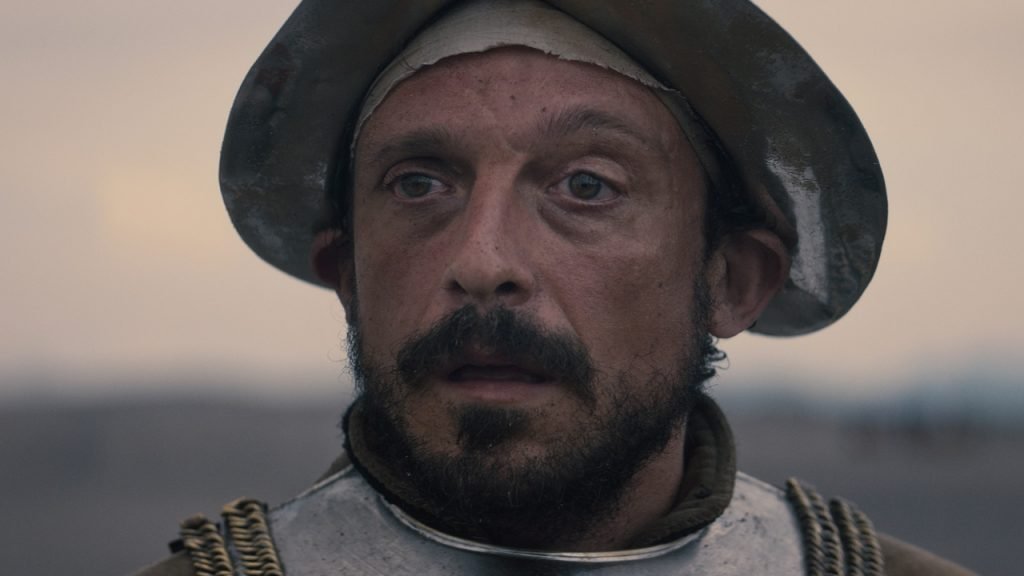499, directed by Rodrigo Reyes, is a hypnotic look at present-day Mexico through the lens of a conquistador, blending fact, fiction, and history.
A lone conquistador washes up on the shore of present-day Mexico. His ship was wrecked in a storm, none of his crewmates survived, and he has somehow found himself 499 years in the future. Thus begins Rodrigo Reyes’ 499, a hypnotic and evocative blend of fact, fiction, and history that seeks to examine the lasting ramifications of centuries of colonialism. We follow the conquistador (Alejandro Mejía) as he travels across Mexico, ruminating on his purpose in the world and listening to testimonies of real Mexican citizens as they recount the atrocities they have faced in their lives.
499 stands out in the world of documentary filmmaking as a bold and original vision. It utilizes both traditionally shot interviews and poetic imagery to craft a thoughtful examination on how present-day Mexico continues to be affected by the evils of colonialism. Usually, we hear an interviewees voice before the film cuts to them, creating a sense that the film and these people exist in a sort of liminal space. Or perhaps this formal choice simply aims to continue the picture’s sense of poetry. In any case, the moments of disembodied voice-overs remain enticing and perfectly cohere with the film’s almost dreamlike sense of reality.
While 499 at times feels slow in its pacing, it is consistently visually arresting, with alluring and thoughtful compositions throughout. The strong visuals heighten the moments when we are listening to the conquistador recount his past as he makes his way across Mexico. Reyes and co-writer Lorena Padilla create a character out of the conquistador, who is faced with the consequences of his own violent actions, and who is forced to bear witness to the traumas people are currently facing. In this way, 499 aims to critique the conquistador while also pondering on if such a vile person is capable of change and remorse.

Additionally, 499 gestures toward social institutions it feels it sees as continuations of colonialism. The film makes connections between the conquistador and institutions such as the police, the military and border patrol. It seems the movie is making connections between these violent, oppressive institutions and the broader institution of colonialism, how the violence intrinsic to it has been transported to various other entities. People and citizens all over the world are still finding themselves faced with discrimination and violence, and the conquistador helps to realize this idea. He feels like a personification of colonialism, a specter haunting Mexico, something you feel is there but cannot always see. 499 does not seem to be explicitly making this idea, but these political and social concerns rumble beneath the surface of the film.
While the story is fairly freeform, 499 remains a strong artistic vision and a standout documentary because of its experimental nature. This is due in part to its immersive visuals, haunting score, and willingness to take risks. The film illustrates a desire to break free from a self-perpetuating cycle of violence and subjugation that has resulted from centuries of colonialism and strives to recreate the past in order to learn from it. Even if the interviews don’t totally cohere with the poetic nature of the rest of the film, and even though I personally wished the movie was blunter in its messaging, 499 is assuredly one of the most interesting documentaries of the year.
499 premiered at the GuadaLAjara Film Festival on Friday, December 18th, 2020.

